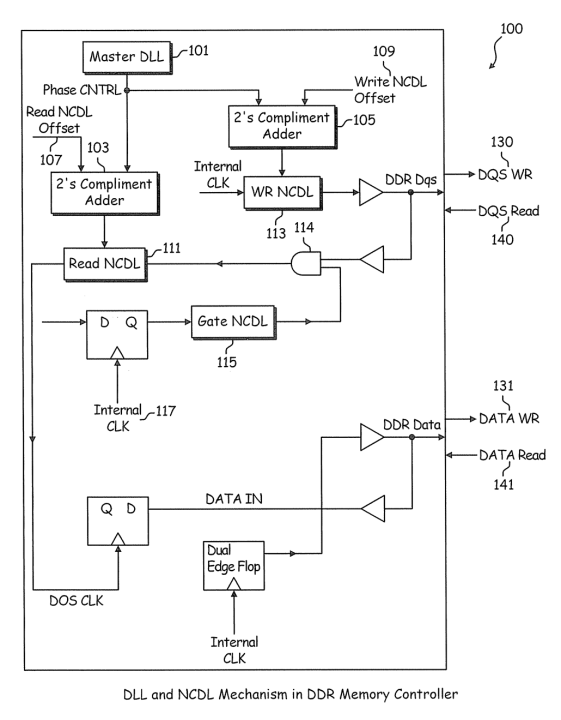As a member of the marketing team here at ktMINE, I have seen how the industry has been affected by technology advancements. Marketing automation, in my opinion, has had the largest impact on the marketing industry throughout my professional career. This sparked my interest in taking a deeper dive into not only the history of marketing automation but the IP data behind it.
In the past five years, marketing automation has grown into a $3.3 billion dollar industry with companies like LinkedIn, Intel, and American Express relying on it to run and monitor their marketing efforts. This innovative industry isn’t slowing down anytime soon, as it’s expected to reach a global value of $5.5 billion by the end of this year.
Marketing automation can be linked all the way back to 1992 when Unica, an IBM product, was released into the market. Though it only scratched the surface, it undeniably launched the industry, providing the base for what it is today. HubSpot, Marketo, and Pardot might ring a bell as they are currently big players in the marketing automation software market.
Who to Look At
Running a trademark search within the ktMINE platform focusing on the keywords marketing and automation, you can see it wasn’t until the late 90’s that companies started to file for trademarks around the marketing automation space. As the years progress, there’s a clear upward trend in both applications and granted trademarks. This climb in numbers corresponds to the continuous growth and adoption of technology within this industry.
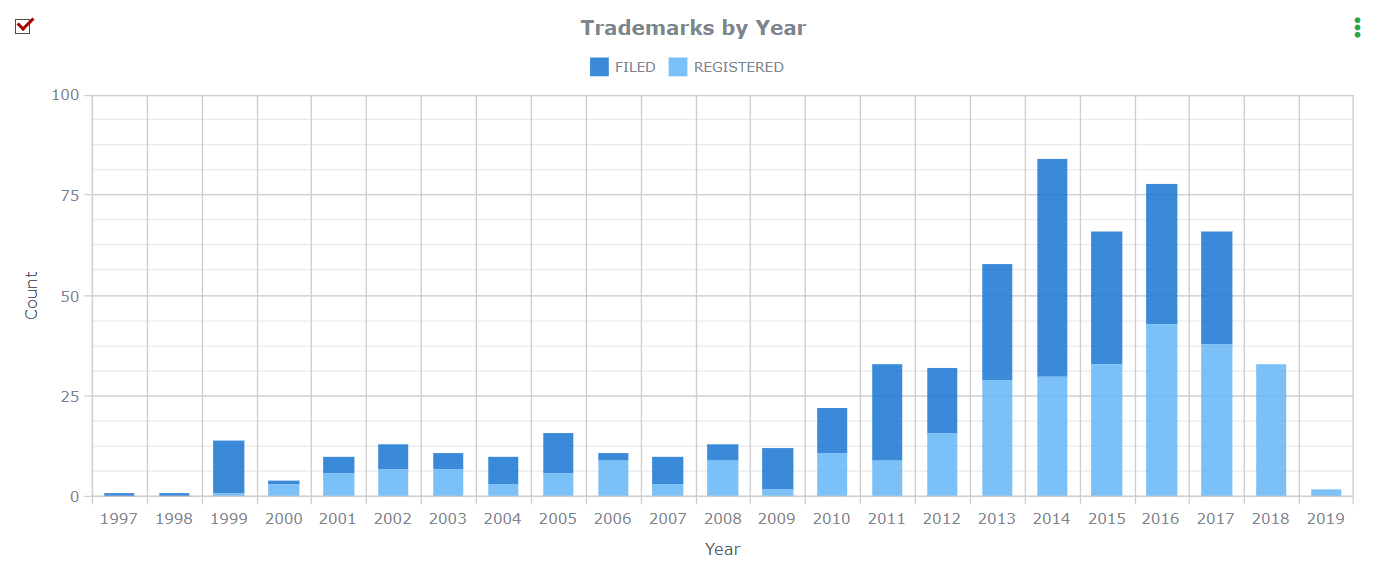
Source: ktMINE Search
Viewing the owners of these trademarks by year, as seen in the graph below, a large number of early filings belong to Salesforce. You can see evidence of their interest in this space well before the acquisition of their marketing automation platform, Pardot, for $2.5 billion back in 2013. Avenue 81 Inc. is another company that might grab your attention as it appears they hadn’t filed for a trademark in this industry until last year. This privately owned Minnesota-based company was founded in 2008, and, according to Bloomberg, Avenue 81 offers:
“Leadpages, a solution to create mobile responsive landing pages, launch pages, sales pages, and other conversion pages. It generates leads and sales for businesses on the Web, in emails, via text messaging, and on social media. The also offers integration where one can collect leads with Leadpages and send data to other marketing and sales applications. Its Leadpages allows users to publish their landing pages as Facebook tabs.”
Avenue 81 currently owns 32 trademarks, 19 of which were registered in 2018. Analyzing their company portfolio, we can only expect to see more from them within this space in years to come.
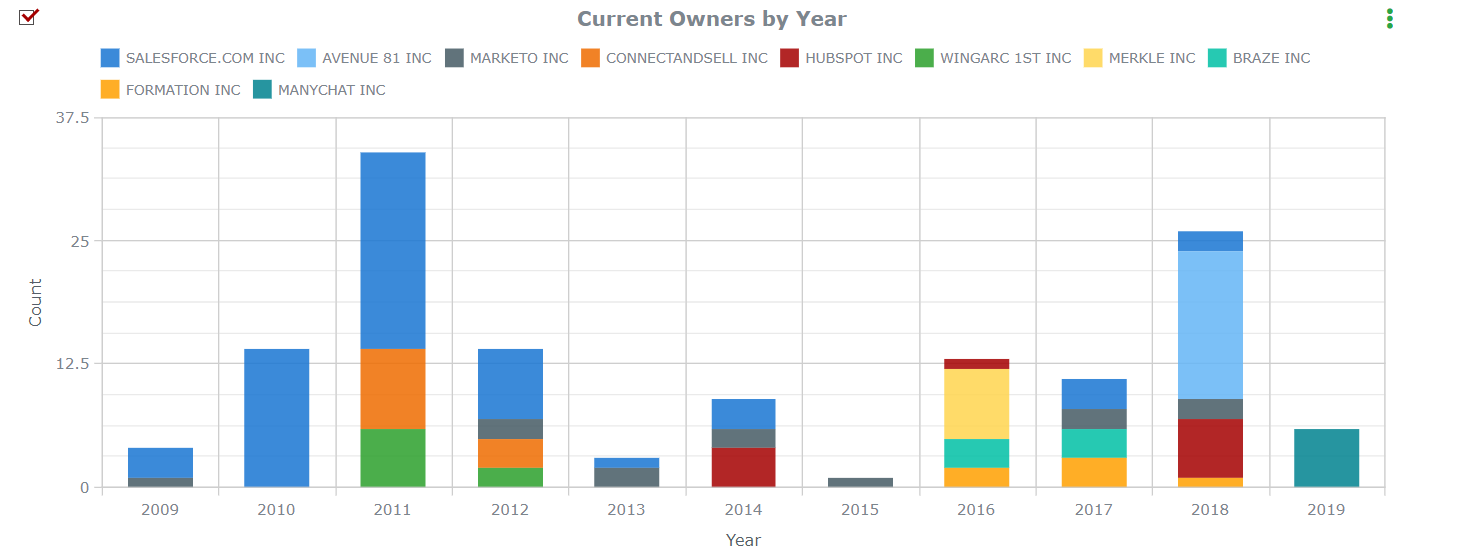
Source: ktMINE Profiles Application
Patents within the Marketing Automation Space
Patents being granted and filed within the marketing automation space tell a similar story, just on a larger scale. Running a search for marketing automation within 20 words of each other (marketing /n20 automation) in the ktMINE Search Application generates the results seen below. While analyzing the graph, the only major difference seen is the amount of activity. In the past 10 years, there have been 1,067 granted patents surrounding marketing automation compared to 689 trademarks. This large number of patents is not surprising, as marketing automation continues to be a booming industry.
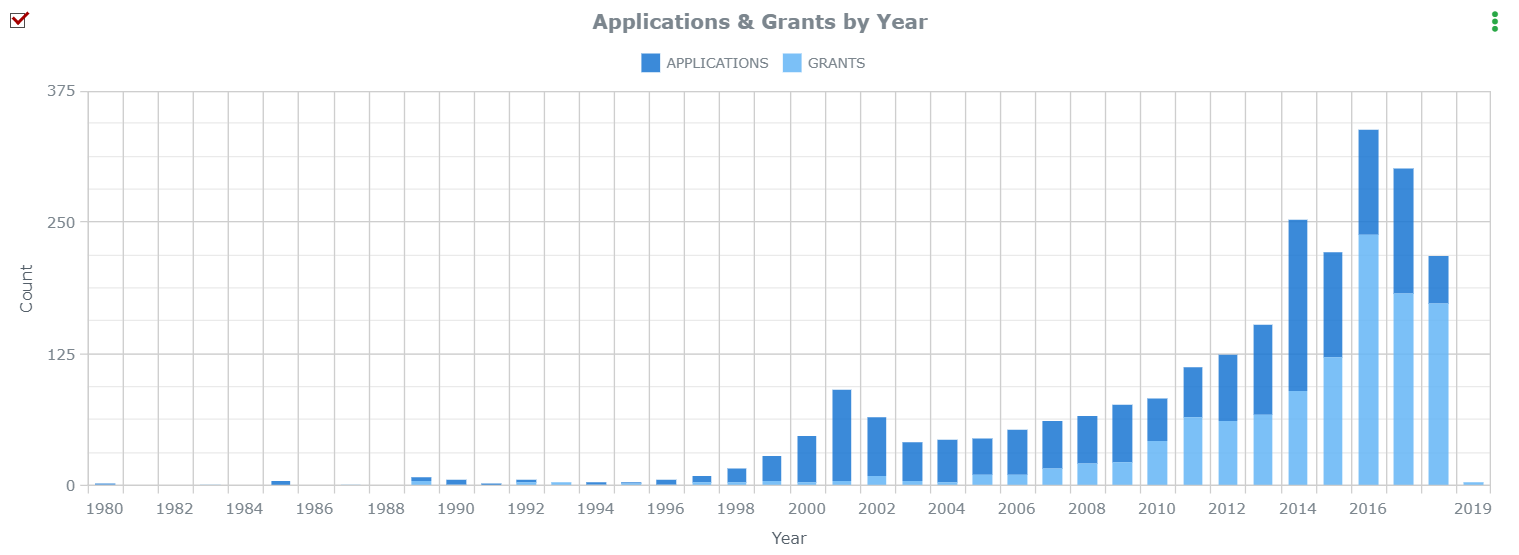
Source: ktMINE IP Platform contains millions of patents and assignments
Take it to Social
With 90% of social media users already having used a social platform as a way to communicate with a given business, it’s no surprise that marketing automation includes the social component of marketing. The following patent, found in the ktMINE Patent Application, discloses a system, method, and computer program product for implementing a marketing automation tool that provides an improved approach for an integrated and/or customized workspace for a social relationship management system. This patent was granted to Oracle, a computer software company in September of 2018.
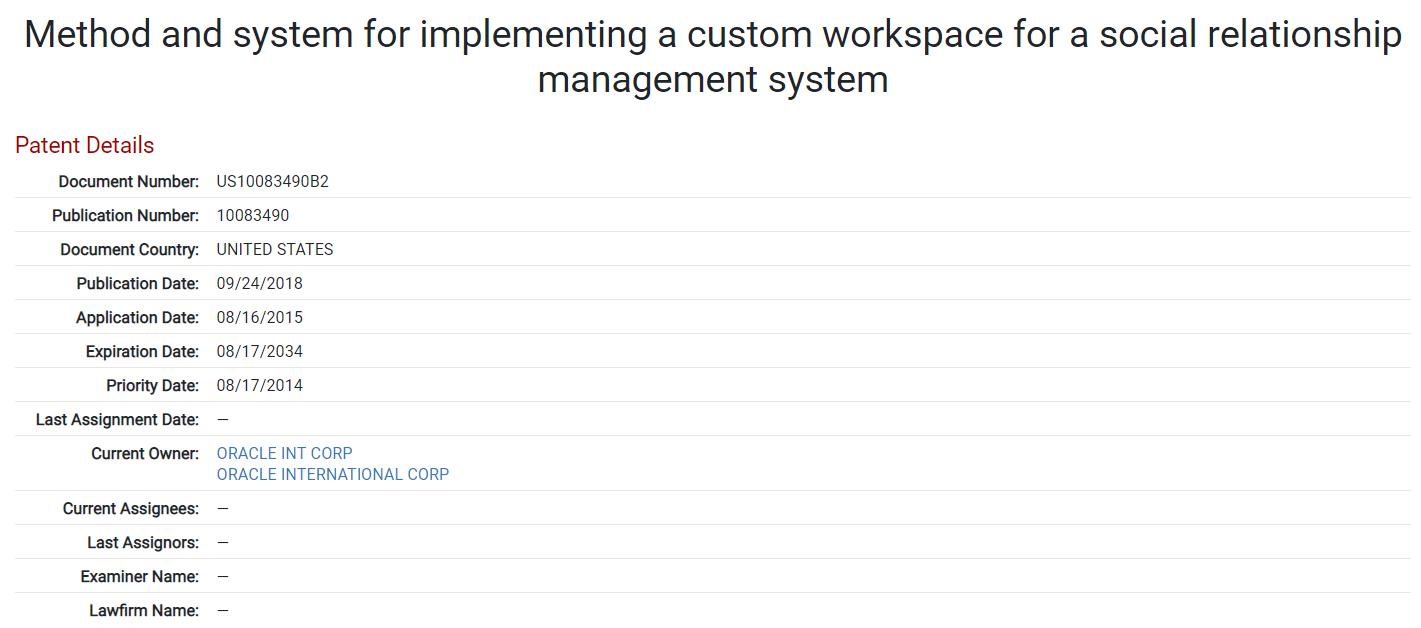
Source: ktMINE Database
The Future of Marketing
The cost of marketing automation platforms is something that continues to evolve. The price of utilizing marketing automated software is becoming increasingly more affordable, lowering the barrier of entry for smaller organizations. The declining cost is directly tied to the competitive nature of this niche market.
As more organizations are able to afford a marketing automation software, providers of these platforms will continue to enhance their products with new features to complement the advanced technology that exists, ultimately steering the future of marketing to belong to marketing automation.





